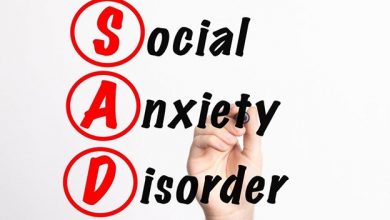How To Improve Your Self-Esteem
Skills you need to Improve your Self-Esteem

Easy Ways to Improve Your Self-Esteem
Just one perspective matters when it comes to your self-worth: your own. Also, the one should be scrutinized carefully; we are also our harshest critics.
Good self-esteem is described as a rational, appreciative opinion of oneself, according to The Self-Esteem Workbook. “Unconditional human worth means that each of us is born with all the capacities required to live fruitfully, despite the fact that everyone has a different combination of skills at various stages of development,” he writes.
He stresses that core worth is unaffected by external factors such as income, education, fitness, reputation, or how one has been viewed in the marketplace.
Some people examine the planet — and their partnerships — for any facts that would support their self-limiting views. They continually put themselves on trial, just as a judge and jury, and often sentence themselves to a lifetime of self-criticism.
The following are five moves you can take to boost your self-esteem.
Boost Your Self-Esteem
(5 Moves)
1. Exercise
Exercise has been linked to higher self-esteem as well as better mental wellbeing in several trials. “Exercising provides physical and mental empowerment,” says Debbie Mandel, author of Addicted to Stress. “Especially weight lifting, where you can calibrate the accomplishments,” she adds. Exercise allows you to plan your day around self-care.”
She recommends removing one item from the never-ending to-do list each day for the sole purpose of relaxing or recreation and seeing how it feels. Other types of self-care, such as a good diet and adequate sleep, have also been found to improve one’s self-perception.
2. Be Aware Of Your Thoughts
We can’t change it until we understand that it has to be changed. We will help to separate ourselves from the emotions evoked by our pessimistic self-talk simply by being conscious of it. As a result, we are able to identify with them fewer.
We can quickly slip into the pit of believing our self-limiting talk if we don’t have this knowledge, and as meditation instructor Allan Lokos suggests, “Don’t believe anything you hear.” “Thoughts are nothing more than that.”
When you see yourself engaging in self-criticism, take note of it, be curious about it, and tell yourself that “these are feelings, not facts.”
3. Change The Situation
You and I and all we have a narrative or story about ourselves that influences our self-perception and forms the foundation of our central self-image. If we wish to alter the myth, we must first comprehend the origins and the sources of the messages we tell ourselves. We’re internalizing whose tones.
“Automatic pessimistic thoughts like ‘you’re obese‘ or ‘you’re lazy‘ can be echoed in your head so many times that you consider them to be true,” says Jessica Koblenz, Psy.D.
“Because these ideas are experienced, they may be unlearned. Affirmations are a good place to begin. What are some of the things you wish you believed for yourself? Each day, repeat these sentences to yourself.”
4. Bring Out Your Inner Rocker
“Everyone is a genius,” Albert Einstein once wrote. But if you judge a fish by its ability to scale a log, it will believe it is dumb for the rest of its life.”
Each of us has our own set of strengths and weaknesses. Someone may be a fantastic guitarist but a terrible chef. Their core worth is described by neither quality. Recognize your strengths and the feelings of trust they inspire, particularly when you’re feeling down.
When you “fail” or “monkey up,” it’s tempting to generalize, but reminding yourself of the ways you rock will help you see yourself in a more realistic light.
5. Forgiveness
Is there someone you haven’t forgiven in your life? Is it a former partner? Is it a relative? What are you? We trap ourselves trapped in a loop of negativity by hanging on to bitterness or frustration. Shame will trap us in this circle if we haven’t forgiven ourselves.
Perhaps because it binds us with our innately caring nature and encourages an appreciation of others, including their flaws,” Schiraldi states, “forgiving oneself and others have been shown to increase self-esteem.”
He’s referring to a Buddhist forgiveness meditation that can be done at any time: “I seek forgiveness if I have offended or damaged someone, whether intentionally or unintentionally. I forgive anyone who has hurt or harmed me, whether intentionally or unintentionally. I apologize for the ways I have harmed myself, whether intentionally or unintentionally.”
Remember, how to improve your self-esteem is based and should be always based on yourself and in your own opinions of how you describe yourself, do no let others describe yourself for you and let yourself be affected by it, take care of your self-esteem.
Check My Private Library For Personal Development
Read More About Personal Development
…
Would You Like To Be Able To Help People By Learning New Skills?…
Below Are The Easiest And The Most Effective Ways To Make It Happen!
- Make An Income By Teaching And Traveling The World
- Become A Coach And Start Earning By Helping Other People
- Master Your Profession, Your Passion, Or Something New
- Be Part Of The World’s Leading Experts And Find Success
Other Important Resources
- Improve Your Life Today (Book)
- IG: Personal / Eagle Beagle Spirit
- Visit Our Shop or Become An Ambassador
Always fighting for your rights and your daily improvement,
Juan Plamen





